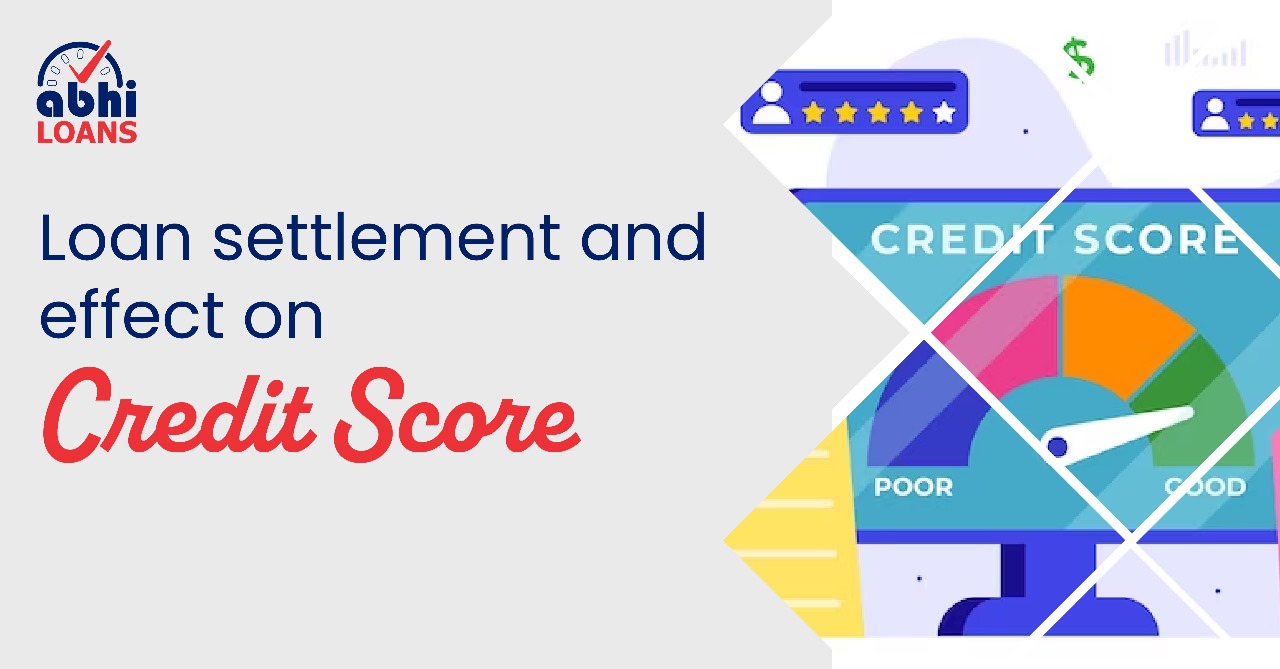Loan settlement and effects on credit score
The world of finance is complex, and at times, circumstances arise where individuals find themselves considering options like loan settlement to manage debts. While loan settlement may offer immediate relief, it’s essential to recognize its lasting impact on your credit score. In this blog, we’ll delve into the nuances of loan settlement and its effects on your credit score, empowering you to make informed financial decisions.
Understanding Loan Settlement
Loan settlement refers to an agreement between a borrower and a lender to settle a debt for an amount less than what is owed. It can take the form of full settlement, where the entire debt is paid off at a reduced amount, or partial settlement, which involves paying a portion of the outstanding balance. People often consider loan settlement due to financial hardships or the desire to quickly clear their debt burden.
Effects of Loan Settlement on Credit Score
- Negative Impact on Credit Score
When a loan is settled, it’s typically reported as “settled” on your credit report. This status can have a negative impact on your credit score. Lenders view settled accounts as an indicator of financial distress, potentially leading to a decrease in your credit score. This can affect your creditworthiness and influence future borrowing opportunities.
- Long-Term Consequences
Settled accounts can remain on your credit report for several years, impacting your credit history. This can make it challenging to obtain favorable loan terms or credit opportunities in the future. Lenders may perceive you as a higher credit risk due to the history of settling debts.
- Comparison with Other Credit Account Statuses
Accounts marked as “settled” differ from those marked as “paid in full.” The latter reflects responsible repayment, maintaining a more positive credit history. Settled accounts, on the other hand, signal that the debt was not repaid as agreed, which can affect your creditworthiness.
Alternatives to Loan Settlement
- Negotiating with Lenders
Before considering settlement, explore the option of negotiating with your lender. You might be able to arrange a revised payment plan that aligns with your financial situation, helping you manage debts without affecting your credit score as severely.
- Consider Debt Consolidation
Debt consolidation loans or programs can be an alternative to settlement. These options allow you to consolidate multiple debts into a single manageable payment. This approach can provide relief while preserving a more positive credit history.
- Financial Counseling
Seeking advice from financial experts or credit counselors can guide you through the process of managing debts responsibly. Professionals can help you develop a comprehensive plan to tackle debts without resorting to settlement.
- Importance of Informed Decision-Making
Weighing the pros and cons of loan settlement is crucial. While settlement may offer short-term relief, it’s essential to consider its long-term consequences on your credit score and financial health. Consulting financial experts can provide valuable insights and help you make decisions that align with your financial goals.
Conclusion
Loan settlement can provide immediate relief from overwhelming debts, but its impact on your credit score is a critical factor to consider. By understanding the effects of settlement on your credit history and exploring alternative options, you can make informed decisions that prioritize both short-term relief and long-term financial stability. Remember, the choices you make today can have a lasting impact on your financial journey tomorrow.
Frequently Asked Questions
What is loan settlement, and how does it differ from paying off a loan in full?
Loan settlement involves reaching an agreement with a lender to settle a debt for an amount less than what is owed. This can be either a partial settlement (paying a portion of the debt) or full settlement (paying the entire debt at a reduced amount). Paying off a loan in full means repaying the entire borrowed amount as initially agreed.
How does loan settlement impact my credit score?
Loan settlement can have a negative impact on your credit score. Settled accounts are often viewed as a sign of financial distress by lenders. The “settled” status on your credit report indicates that you did not repay the debt as originally agreed, which can result in a decreased credit score.
How long do settled accounts remain on my credit report?
Settled accounts can remain on your credit report for several years, typically around 7 years. This extended presence on your credit history can affect your creditworthiness and influence future borrowing opportunities.
Are there alternatives to loan settlement that have less impact on my credit score?
Yes, there are alternatives to loan settlement that can have less impact on your credit score. You can consider negotiating with your lender for revised payment terms, exploring debt consolidation options, or seeking financial counseling to develop a plan for managing your debts responsibly.
Can I improve my credit score after settling a loan?
While your credit score may have been negatively affected by the settlement, you can still work on improving it over time. Focus on responsible credit management practices, such as paying bills on time, maintaining a low credit utilization ratio, and diversifying your credit mix. As you demonstrate responsible financial behavior, your credit score can gradually recover.

